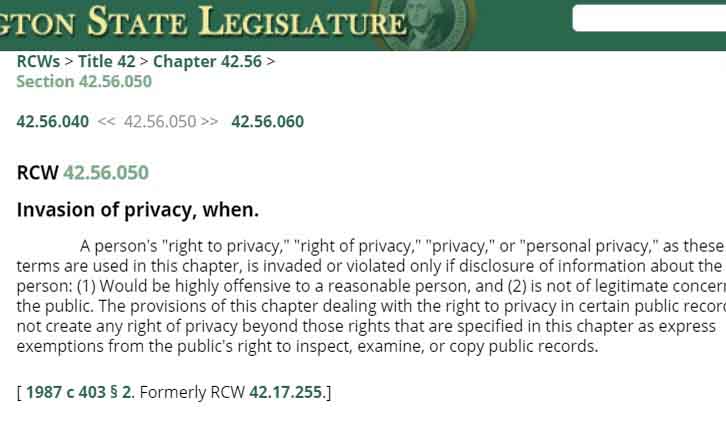This project developed recommended changes to the state’s Public Records Act that will enable the state’s public agencies, cities, and counties to obtain and use a variety of new electronic data—often collected by the private sector—that describe transportation system use of individuals, vehicles, and companies, without releasing to the public detailed data that could compromise the privacy of individuals and the trade secrets of companies.
Individuals provide substantial amounts of data with specific details about themselves to private transportation companies and others in connection with their requests for transportation services. Government agencies have a long history of working with private transportation companies to manage traffic, provide adequate parking, and maintain safe and walkable communities. Those who share their transportation-related data often are unaware that this information, when held by government agencies, may be released under the Public Records Act.
The State of Washington’s Public Records Act (PRA), passed as a public initiative in 1972, was designed to provide more transparency in the decision-making process at all levels of government. The law also directly acknowledges that citizens have privacy rights that deserve protections. However, the current version of the PRA was not written to account for the ways that modern technology has changed the collection of data and how those data are used for business applications and to manage the transportation system, as well as how unscrupulous individuals can abuse those data.
To address these concerns, the research team held a series of engagement meetings with key public, private, and non-profit stakeholders to understand their primary interests related to data sharing and the Public Records Act. The team included the UW researchers and participants from WSDOT and Milligan Partners. Stakeholders included one or more representatives from nine government agencies, four trade associations, eight companies supplying transportation services, four non-profit advocacy groups, and three news organizations.
Through these meetings, the research team clarified the interests of stakeholder organizations and determined the areas of tension between them and even within the same organization. The amendment developed and refined through these meetings was designed to address these tensions and was well received by those stakeholders. While some stakeholder issues with public agency collection, use, and sharing of data remain to be resolved, those issues will have to be addressed outside the PRA.
The suggested PRA amendment is intended to balance the sometimes-competing data sharing views of different stakeholders. The primary change is to exempt individual movement and location data from mandated release by government agencies. The key text of the amendment to the PRA, within RCW 42.56.330, is as follows:
(4) Data collected, owned, used, or retained by any agency that includes an individual’s name, account information or other financial information as defined in RCW 9.35.005, location, travel history, receipt of goods, or transportation transactions. Such data includes without limitation (i) information uniquely identifiable to a device, (ii) Global Positioning System (GPS) coordinates, (iii) media access control (MAC) addresses, (iv) Bluetooth identifiers, (v) wireless (Wi-Fi) networking data, or (vi) cellular network data.
(a) Such data may be disclosed if it is in aggregate form.
(b) Such data is not exempt from disclosure if it identifies an agency vehicle or agency employee acting within the scope of employment, unless exempt under RCW 42.56.230(7), RCW 42.56.250(9), RCW 42.56.240(13), or other law.
(c) The exemption in this paragraph (4) does not prevent the disclosure of reports or studies based in whole or in part on such data so long as exempted data is in aggregate form or is removed or redacted from the disclosed record.
This amendment should clarify privacy and trade secret protections of individuals and companies within the law, while maintaining transparency in government decision making. It should remove barriers to the sharing and use of private sector data to enable public agencies to more effectively manage the transportation system.
Documents
The project’s three final documents have been combined into a single pdf.
Authors:
Brittany Collins, UW Evans School of Public Affairs
Adam Porton, UW Evans School of Public Affairs
Mark Hallenbeck, Washington State Transportation Center-UW
Devin Glaser, UW Law School
Hugh Spitzer, UW Law School
Sponsors:
WSDOT
Sound Transit
King County Metro Transit
WSDOT Technical Monitor: Ricardo Gotla
WSDOT Project Manager: Jon Peterson

